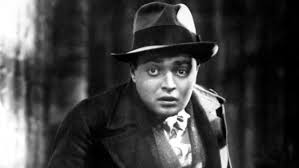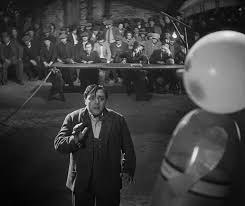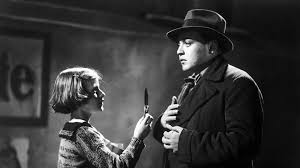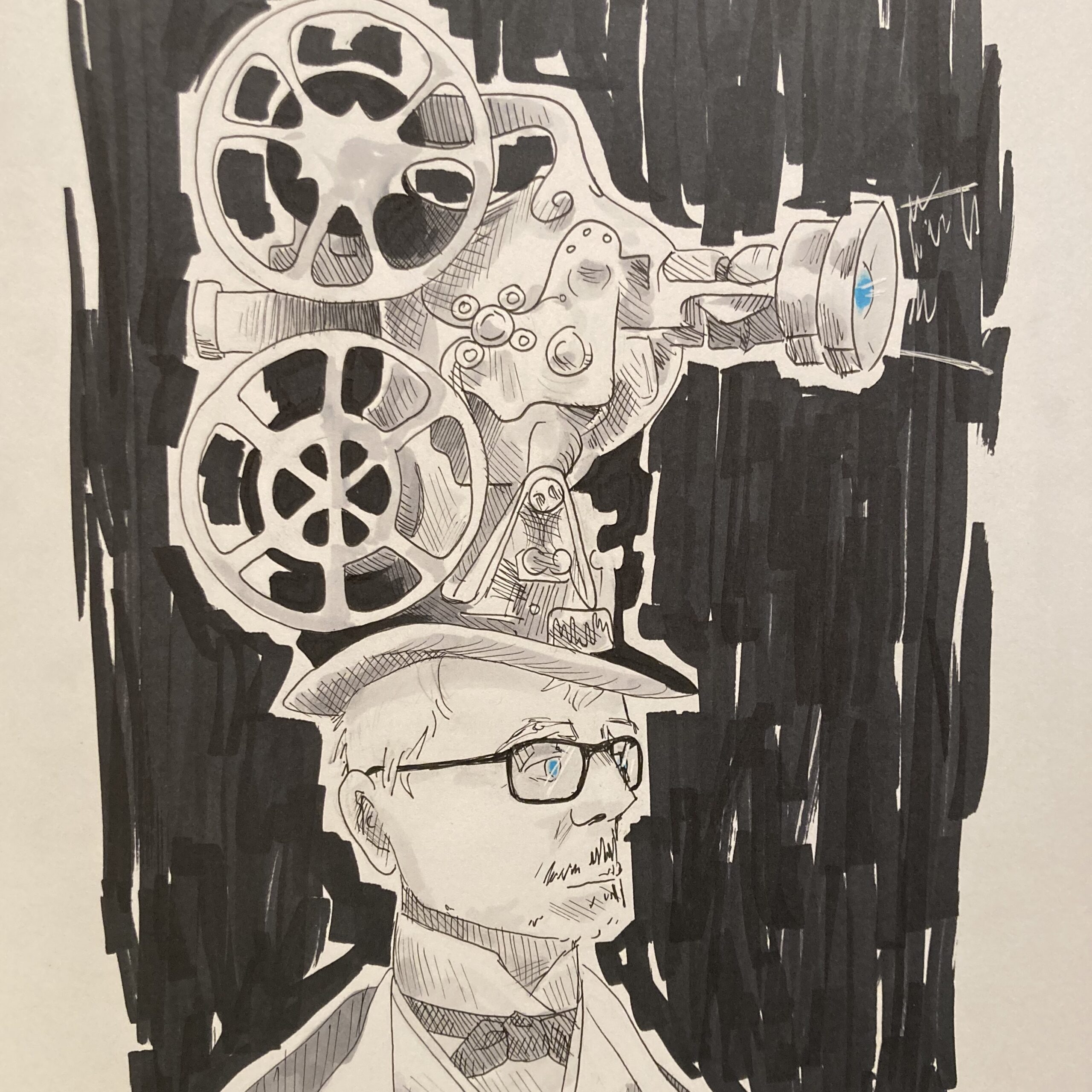“I can’t help myself! I have no control over this, this evil thing inside of me, the fire, the voices, the torment!”
The transition from silent movies to sound film was a sea change in the life of motion pictures. It’s been well documented how the transition led to the destruction of many careers and also to the flowering of entirely new creative disciplines. In the main, the addition of sound accelerated the true-to-life promise of cinema as the twentieth century’s premier art form, but the peculiar moment between the two traditions, from silence to sound, is where we see the experimentation and redefinition of what a good movie looks and sounds like.

Fritz Lang directed M in 1931. It’s a ripped-from-the-headlines story of a predator who kills girls in Berlin. The precedent seems to have been a mix of various 1920s serial killers, including Peter Kürten, “The Vampire of Düsseldorf,” Friedrich Haarmann, “The Butcher of Hanover,” and Karl Denke, “The Cannibal of Ziebice.” In Lang’s telling, the monster is Hans Beckert, played by the doughy, bug-eyed comic performer Peter Lorre, and his MO is to meet schoolgirls, offer them sweet treats and balloons, and kill them.
As another murder victim is discovered, local politicians pressure the city’s police force to find the murderer. The police respond by raiding known criminal enclaves. Crime lords call a meeting, agreeing to find the killer using street surveillance by the homeless, and they eventually run down Beckert just ahead of the police who’ve become convinced he’s the killer.

In the penultimate sequence, Beckert is put on trial by the crime lords in an abandoned brewery. The crowd shouts out for mob justice and his execution, while his defense “attorney,” a knowledgeable drunk, exhorts the crowd to recognize Beckert’s mental illness, particularly after Beckert gives an impassioned plea to preserve his life. “I can not help myself,” he says. “I have no control over this evil thing that is inside me – the fire, the voices, the torment!”
Police investigators sweep into the brewery and arrest everyone. At Beckert’s trial, a victim’s mother tells the audience, in direct address, to look after their children, and the screen fades to black.
Aside from dramatizing aspects of German psychology in the gap years between World Wars I and II, partly to express Weimar-period paranoia about inexplicable madness and cultural decline, M offers a detailed procedural of policing technique, circa 1930. Because cameras were quite mobile at the time, although sound recording tools were not, Lang’s solution is to offer a mix of sound bridges, extended sequences of silence punctuated by noise, and a singular musical motif, “In Hall of the Mountain King” from Peer Gynt, which is whistled by Beckert whenever he’s prowling for victims.

A sound bridge is the use of any sound that connects two images. Lang and his co-writer and wife, Thea von Harbou, construct sequences that allow speakers to narrate what we see to explain what’s happening through a sound bridge. Memorably, this technique is used when the Minister (Franz Stein) chews out Inspector Lohmann (Otto Wernicke), who then explains how the police investigate murders as we watch these activities being expressed on-screen.
Because M is still very much a silent movie, the natural sounds of the city are almost non-existent. But there are moments when quiet works wonders. In one sequence the police descend on a neighborhood with bars and prostitutes. Dozens of uniformed police parade down the street, cordoning it off, and paddy wagons roll-up curbside, all in perfect silence. When a lookout screams to signal the arrival of the authorities, we hear pandemonium in angry and confused voices. After the prolonged silence of the build-up, the raid itself, which is still largely silent, seems extremely lively and vividly, sonically real.
The lasting tour-de-force from M is Beckert’s compulsive whistling. The fact that a blind balloon seller (Georg John) traces him to his crimes because of this distinctive “music” is what undoes the killer and brings him to justice. Aside from the sounds of an organ grinder, there is no other music in M, only Beckert whistling “In the Hall of the Mountain King” that carries with it a set of eerie lyrics that, when translated, read thusly:
“Slay him! The Christian man’s son has seduced / the fairest maid of the Mountain King! / Slay him! Slay him! / May I hack him on the fingers? / May I tug him by the hair? / Hu, hey, let me bite him in the haunches! / Shall he be boiled into broth and bree to me / Shall he roast on a spit or be browned in a stewpan? / Ice to your blood, friends!”
–November 30, 2018




